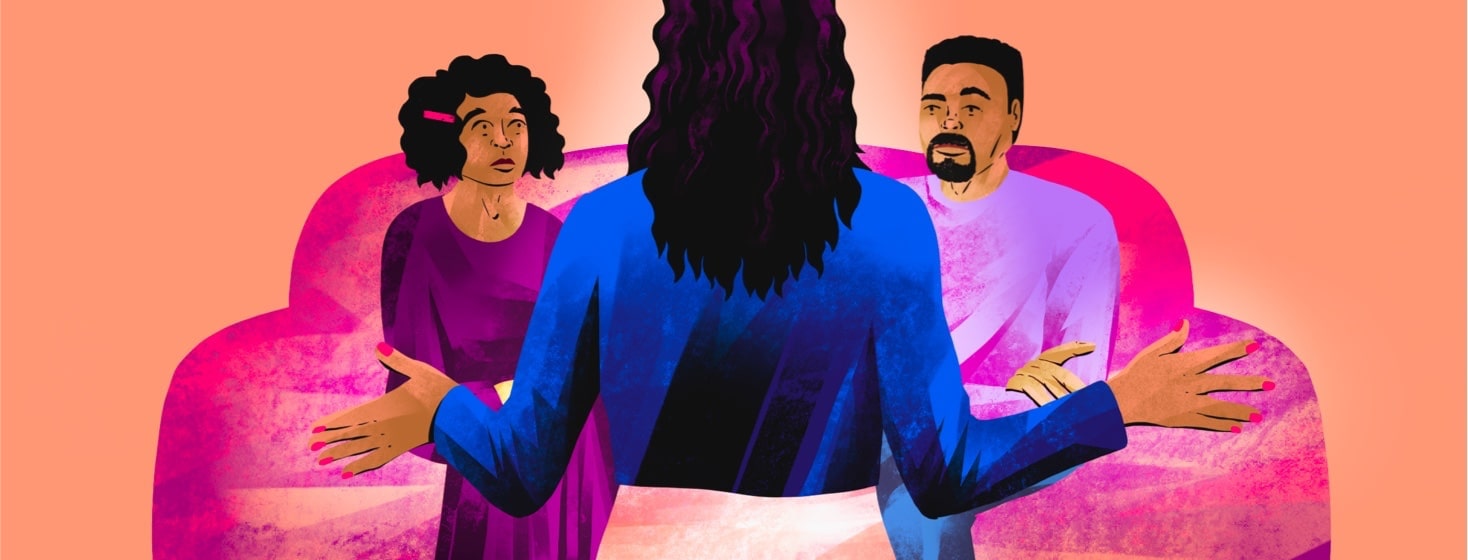Community Views: What I Wish My Friends and Family Knew
For many people with narcolepsy, finding comfort and support in friends and family is an essential part of the condition journey. When those living with narcolepsy encounter a lack of support or understanding from the people in their life who do not have narcolepsy, it can be a struggle to not feel isolated, upset, guilty, or a number of other emotions.
Stigma surrounding narcolepsy is not your fault, and if you have encountered narcolepsy stigma among your friends or family, you are not alone. Stigma is often the result of a lack of knowledge and understanding on the part of the people around us, and dealing with this can make it difficult to maintain relationships with others.
This or That
Do you feel you have enough support from family and friends in your narcolepsy journey?
To gather perspectives on this prevalent topic in the narcolepsy community, we recently asked our Facebook community, "What do you wish your friends or family better understood about narcolepsy?" Here's what you shared with us.
What narcolepsy is and isn't
Narcolepsy is not just being tired — it is much more than that. Many community members expressed wanting the people close to them to realize that narcolepsy is not a choice, cannot be cured, and is not within their control.
"It's not the same as just being tired once in a while. It's constant."
"I can’t just stay awake when I want to."
"We cannot help it... it’s not intentional... we don’t want this."
"We lost our dreams in many cases because of an illness we didn't choose."
"It's nowhere near as funny as it gets portrayed in movies."
"They just don't get it. I just wish people would understand."
Confusing narcolepsy with 'laziness'
One common misconception about narcolepsy is that its symptoms, especially excessive daytime sleepiness, are just signs of being "lazy." Several community members shared the impact of this narcolepsy myth.
"I wish they wouldn't think I'm being lazy when it's hard for me to wake up in the morning."
"We are not lazy."
"Even when explained to them, they still think laziness."
"It’s not my fault when I oversleep. I’m not being lazy. My brain won’t let me wake up."
Featured Forum
View all responsesMaintaining relationships while managing symptoms
Maintaining friendships, romantic relationships, and relationships with family members can be difficult when the people in your life do not understand the impact of your condition. Many community members shared the difficulties they have faced while trying to manage both their relationships with others and their narcolepsy symptoms at the same time.
Frustration with others' lack of understanding
A few community members expressed frustration with the lack of understanding among the people close to them.
"When I'm too tired to drive to see them, please stop taking it personally. Would you rather attend my funeral?!"
"Please don’t complain to me about how tired you are. Also, don’t attempt to tell me what I need to try when I can’t sleep at night."
"I get so irritated with some people. Why ask if you're going to insult? My daughter has it. And it's not her fault she [dozes off] when we go anywhere. I think that's why she never wants to go anywhere."
Dealing with misunderstandings
A few more community members shared that they have been misunderstood by loved ones due to their narcolepsy, which has led to a lack of support.
"There is no cure. Some days I can manage my symptoms, and other days my symptoms manage me. I’m not unhappy, I’m not depressed. I just need to be able to rest every day so I can keep on doing all I do for them."
"I wasn't diagnosed until I was 64! The symptoms were all thought to be part of my fibromyalgia. Family was never interested, and friends are very difficult to keep when one isn't reliable."
"When I get tired and have to cancel something, I don't do it on purpose."
What do you wish friends and family knew?
A few community members and Health Leaders have also shared a common perspective: "If your family or friends make you feel bad about yourself, let them go!" - Jenean, Community Health Leader
"If a friend isn't interested in understanding me, I don't need them."
We are grateful to our community members for sharing their perspectives on this topic. Thank you for supporting each other and helping us all realize we are not alone.
Do you have an experience to share? Leave a comment below, or check out our forums.

Join the conversation